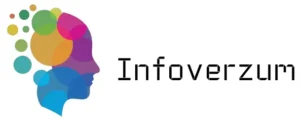In today’s digitalized society, information literacy is a crucial skill that goes beyond merely digital and computer literacy. It encompasses a set of abilities that enable individuals to effectively access, evaluate, and create information. As an overarching concept, information literacy includes media literacy, digital literacy, and metaliteracy, combining the knowledge necessary for safe, responsible, and critical engagement in a modern digital environment, where data and information are abundantly available.
Information literacy is essential for everyday life, as it enables citizens to identify credible sources, distinguish facts from opinions, and use information appropriately. Today’s information is accessible across numerous platforms, and its quality can vary greatly. A lack of these competencies can lead to misconceptions that influence individual decision-making, which is particularly evident during periods of widespread disinformation.
The importance of information literacy is multifaceted:
- Enhancing Critical Thinking: Helps individuals develop the ability to think critically and make informed decisions based on verified information.
- Personal Development: Enhances the ability for lifelong learning, personal growth, and acquiring new skills.
- Professional Success: It is crucial for success in educational institutions and the workplace, where constant searching, evaluation, and use of information are required.
- Active Citizenship: Enables informed participation in social and political processes, leading to a more aware and engaged society.
The Role of Libraries and Librarians in Promoting Information Literacy
Libraries and librarians play a key role in promoting information literacy. As centers of knowledge and information resources, they provide spaces where individuals can access reliable information and tools to process it. Librarians, as experts in information resources, offer valuable guidance and support in searching for, evaluating, and using information. In libraries, we strive, together with external experts and in accordance with professional recommendations and standards for public libraries, to create an inclusive society that values and promotes information literacy. It is the foundation for lifelong learning and personal development, as well as for active citizenship in a democratic society.
- Education and Training: Librarians organize workshops, courses, and educational programs to develop information literacy, tailored to different age groups and user needs.
- Access to Resources: Libraries provide access to a wide range of information resources, including digital databases, books, journals, and other materials that are essential for developing information literacy.
- Research Support: Librarians assist users in searching for and evaluating resources, as well as in correctly using information for research purposes
- Promoting Critical Thinking: Libraries foster critical thinking by providing access to diverse perspectives and resources, and by encouraging an analytical approach to information.
- Community Building: Through their programs and services, libraries contribute to creating an aware and informed community capable of making thoughtful decisions and participating in social processes.
Information literacy is crucial for the success of individuals and communities in the digital age, and libraries and librarians play an indispensable role in promoting and developing it. Through their knowledge and dedication, they contribute to better understanding, use, and evaluation of information, leading to greater awareness and empowerment of both individuals and society as a whole

